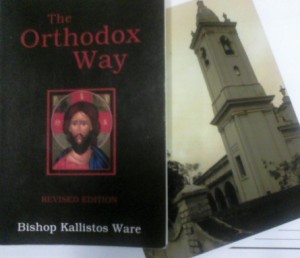 Our journey through the darkness of life is a lot like a blundering trip through the woods at night. The circumstances of life will sometimes force us to strike out into the unknown though we may want to stay where we are. We may even start off walking on a familiar path only to find ourselves lost in confusion far from any recognizable landmarks. At some point during these times of wandering we will most likely stumble across some type of marker left behind by those who went before us. And when we do stumble upon a marker, it can be hard to know which direction to go.
Our journey through the darkness of life is a lot like a blundering trip through the woods at night. The circumstances of life will sometimes force us to strike out into the unknown though we may want to stay where we are. We may even start off walking on a familiar path only to find ourselves lost in confusion far from any recognizable landmarks. At some point during these times of wandering we will most likely stumble across some type of marker left behind by those who went before us. And when we do stumble upon a marker, it can be hard to know which direction to go.
Luckily for us, some of the people before us kept a record of what they did and what the Lord did around and through them. We call this record the Bible and it was written over approximately 1,500 years by at least forty different authors. Within its pages we find life and encouragement to keep walking into the darkness of the unknown. We can read about a farmer named Gideon who nervously stepped out in faith and followed the Lord’s command. Or we can hear how a few fishermen, a tax collector and some backwoods nobodies changed the course of human history. Furthermore when we are awakened in the night by a thought provoking dream, we can open up the Scriptures and read about Joseph and his dreams. In reading these stories, we can build up our faith and courage as we see how God worked in and through average folks just like us.
In addition to reading the ancient stories, we can also talk to those around us. Years ago when I was in my late twenties I found myself lost in the darkness of life surrounded by lots of new concepts about God and life. As I pondering these things, I realized that I needed some help before I could fully embrace them. Looking around me, I asked some women and men in my church who I perceived were further along the ancient path to join me for coffee. Gathering together, we allowed ourselves to be completely honest with each other and ourselves. No concept or issue was off the table as we all wanted fully vet the new concepts we were learning. If the ideas were not in line with the person of Jesus and the Scriptures, then we didn’t want to walk down that path. This monthly “Kingdom Coffee” group soon became a guide for us as we traveled through the darkness of life.
It is easy for those of us in the United States of America to forget about the value of community. We are surrounded by an individualist society with a high value being placed on the views of the individual. And while there is some good that comes out of such a society, we must also recognize the value of belonging to a faith that is bigger and older than any of us. “We do not read the Bible as isolated individuals,” Bishop Kallistos Ware of the Eastern Orthodox Church reminds us, “interpreting it solely by the light of our private understanding, or in terms of current theories about source, form or redaction criticism. We read it as members of the Church, in communion with all the other members throughout the ages.”[1]
Theology, after all, is the “ongoing conversation among those whom the God of the Bible has encountered in Jesus Christ.”[2] And in thinking about the community of believers, we must not limit ourselves to only those who are currently alive. Christianity, we must always remember, does not belong solely to the living but also to those who have confessed Christ throughout the ages. Accordingly there is wisdom in listening to and learning from both those who have walked before us in history as well as those living around us at this moment. It is a both/and concept in which we seek the counsel of others even when we are tempted to isolate ourselves.
[1] Kallistos Ware, The Orthodox Way, 110.
[2] Stanley Grenz, John Franke. Beyond Foundationalism: Shaping Theology in a Postmodern Context (Louisville, Kentucky: Westminster John Knox Press, 2001), 233.

 I was first introduced to Kallistos Ware’s book
I was first introduced to Kallistos Ware’s book 